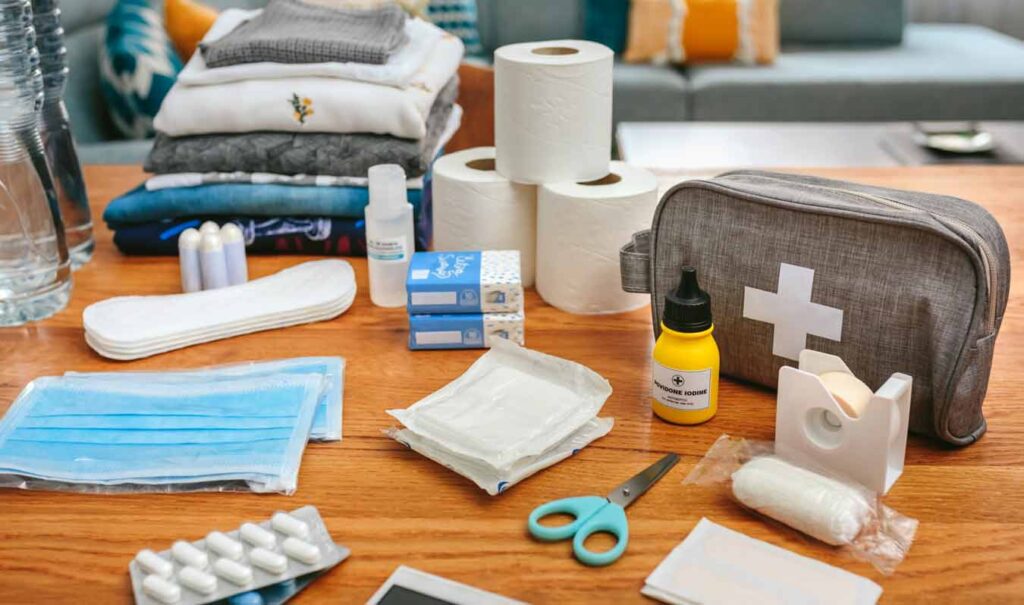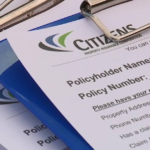As the new hurricane season approaches, it is important for homeowners in Florida to prepare for severe weather.
While it is impossible to predict the exact timing and severity of each storm, putting together a comprehensive emergency kit can help make sure you are ready if a hurricane hits your area.
Having an effective and organized preparedness plan will ensure that you have all essential items accessible when needed during this unpredictable time of year. Building an emergency supply kit doesn’t have to be difficult or expensive – just follow our three easy steps below and you’ll be on your way!
Overview of Hurricane Emergency Preparedness in Florida
Hurricane season in Florida can bring immense stress and anxiety to residents and visitors alike. However, by taking the time to educate yourself on emergency preparedness, you can ease some of that worry and feel confident in your ability to handle any potential disaster. It’s important to have a plan in place before a hurricane even forms, including stockpiling necessary supplies and deciding on a safe shelter. It’s also crucial to stay informed through reliable sources, such as local news and official government alerts. By taking these simple steps, you can ensure that you and your loved ones are ready for whatever may come during Florida’s hurricane season.
The Necessity of Building a Hurricane Emergency Kit
In areas prone to hurricanes, building an emergency kit is essential. It is not a matter of if a hurricane will strike, but when. A well-prepared kit can help keep you and your family safe during the storm and in its aftermath. Include non-perishable food items, at least a gallon of water per person, first-aid supplies, a flashlight, and extra batteries. Don’t forget to pack any necessary medications, important documents, and a change of clothes. Be sure to also have cash on hand in case ATMs are unavailable. By taking proactive measures to create an emergency kit, you can ease your mind and be better equipped to manage the impact of a hurricane.
Consider Buying a Pre-Made Kit
For those who want to be extra prepared and don’t want the hassle of buying supplies separately, pre-made hurricane emergency kits are available. These kits often include all the necessary items that you would expect in an emergency kit, including food, water, flashlights and other important items. They can also come with extra options such as a radio or air mattress. Be sure to compare different brands and prices before you make your purchase to ensure that you get the best value for your money.
What to Include in Your Hurricane Emergency Kit
As hurricane season approaches, having a comprehensive emergency kit can make all the difference in ensuring your safety and survival. In addition to the obvious necessities like food and water, it’s important to consider other items such as a first aid kit, a battery-powered or hand-crank radio, extra batteries, a flashlight, and a multi-purpose tool. Another often-overlooked item to include is a waterproof document container for important paperwork like insurance documents and identification. Remember, the key is to be prepared for any situation, and taking the time to gather supplies now can save lives later.
Non-perishable food items
Non-perishable food items are essential in any pantry, providing a reliable source of sustenance during emergencies or times of need. These shelf-stable items can include canned goods, dried fruits and vegetables, pasta, and grains. It’s important to keep in mind that while non-perishable items have a long shelf life, they do eventually expire and should be rotated out of your pantry regularly. When stocking up on non-perishables, it’s also important to consider your dietary needs and preferences. Look for low-sodium or low-sugar options, or choose items that fit into your preferred diet, such as gluten-free or vegan. Keeping a well-stocked pantry of non-perishables can provide peace of mind and help you feel prepared for whatever life throws your way.
Water and drinks
Water and drinks are essential for maintaining our bodies’ health and well-being. Proper hydration is essential for optimal physical and mental performance, especially during hot weather or intense physical activity. Water is the best drink to quench thirst and rehydrate the body, but other beverages like tea, coffee, and milk can also contribute to fluid intake. However, it’s essential to avoid sugary drinks like soda and energy drinks as they can lead to weight gain and other health conditions. By making a conscious effort to drink enough fluids and choosing healthier options like water or herbal tea, you can improve your overall health and well-being.
First-aid kit
It’s always essential to be prepared for emergencies, especially when it comes to injuries. A well-stocked and organized first-aid kit can go a long way in providing timely and effective treatment. But what exactly should a first-aid kit contain? Some basic supplies like adhesive bandages, antiseptic wipes, and gauze are a good start. But don’t forget other essentials like a thermometer, tweezers, and scissors. Additionally, make sure to include any specialized items that may be necessary for your daily activities or medical conditions, such as asthma inhalers or epinephrine auto-injectors. Remember to check and replenish your first-aid kit regularly, and always consult with a medical professional for advice on what to include.

Essential medications
Essential medications are drugs that are considered necessary for the treatment of an illness or the maintenance of one’s health. These medications are often backed by scientific research and have been proven to be effective in treating various medical conditions. It is important to note that not all drugs are essential medications, as some medications may have potential side effects or may not be used for treatment purposes. Some examples of essential medications include antibiotics for bacterial infections, insulin for diabetes, and pain medications for individuals suffering from chronic pain. It is crucial for individuals to have access to essential medications in order to maintain and improve their overall health.
Flashlights, batteries, and candles
It’s important to have flashlights, batteries, and candles in case of a power outage or emergency. Flashlights help you see in the dark, and batteries keep them working for a long time. Candles can also be helpful to have.
What proved to be almost essential after Hurricane Ian for me was that I had several battery-powered headlamps. It gets dark at night, especially in your house, and it was easiest to just wear the headlamp so that I could see in the dark and continue the tasks that needed to be done.
Candles offer a more traditional light source, and can also help keep you warm in colder months. It is crucial to always have fresh batteries on hand and to regularly check the charge of your flashlights to ensure they will be useful when you need them most.
Additionally, it is important to practice proper safety precautions when using candles, such as keeping them away from flammable materials and never leaving them unattended. By being prepared with these items, you can feel more secure and confident in your ability to weather any unexpected situation.
How to Store Your Hurricane Emergency Kit Properly
If you live in an area that is prone to hurricane activity, you should always be prepared with an emergency kit in case the worst happens. However, simply having a kit is not enough – it is important to also know how to store it properly in order to ensure that its contents remain effective when you need them most. Proper storage means keeping your kit in a dry, cool and dark location, away from direct sunlight and moisture. You should also check the expiration dates of any food, medication or other perishables in your kit at regular intervals, and replace them as necessary. By taking these simple steps, you can help to ensure that your emergency kit is ready and waiting to serve you and your family in case of a hurricane emergency.
Tips for Keeping Your Family Safe During a Hurricane
Hurricanes can be devastating and leave families feeling overwhelmed and unsafe. However, there are steps that can be taken to ensure your family’s safety during a hurricane. First, stay informed by monitoring the news and weather updates. Familiarize yourself with evacuation routes and have a plan in place. Stock up on non-perishable food and water, as well as necessary medicine and first-aid supplies. Secure your home by boarding up windows and bringing in outdoor items. If you have to evacuate, take essential items like important documents, phone chargers, and cash with you. These steps can help keep your family safe during a hurricane and give you peace of mind during a potentially stressful time.
Common Misconceptions about Hurricanes and Safety
Hurricanes are one of the most powerful and devastating natural disasters that occur on Earth. However, there are several misconceptions about these hurricanes that can put people’s safety at risk. For instance, some people believe that taping up their windows during a hurricane will keep them safe. Unfortunately, this is not true. If a hurricane’s winds get strong enough, even the strongest duct tape won’t hold the windows together. Another common misconception is that hurricanes only occur in coastal areas. While it’s true that hurricanes can form near the coast, they can travel several hundred miles inland and cause damage. Therefore, it’s essential to understand these misconceptions and follow the safety guidelines issued by the National Hurricane Center to stay safe during a hurricane.
Hurricane season in Florida can be a scary and unpredictable time of year, but by taking the steps outlined here to prepare your household for a potential emergency you can ensure you are ready. Building an emergency kit is essential and should contain a diverse set of items that cover the brief basics and essential needs for any families sheltering from a hurricane. The way you store your kit is important too as this can help to keep all items in optimum condition until needed.
Check out our other posts in our hurricane season prep series to make sure you’re properly prepared.







